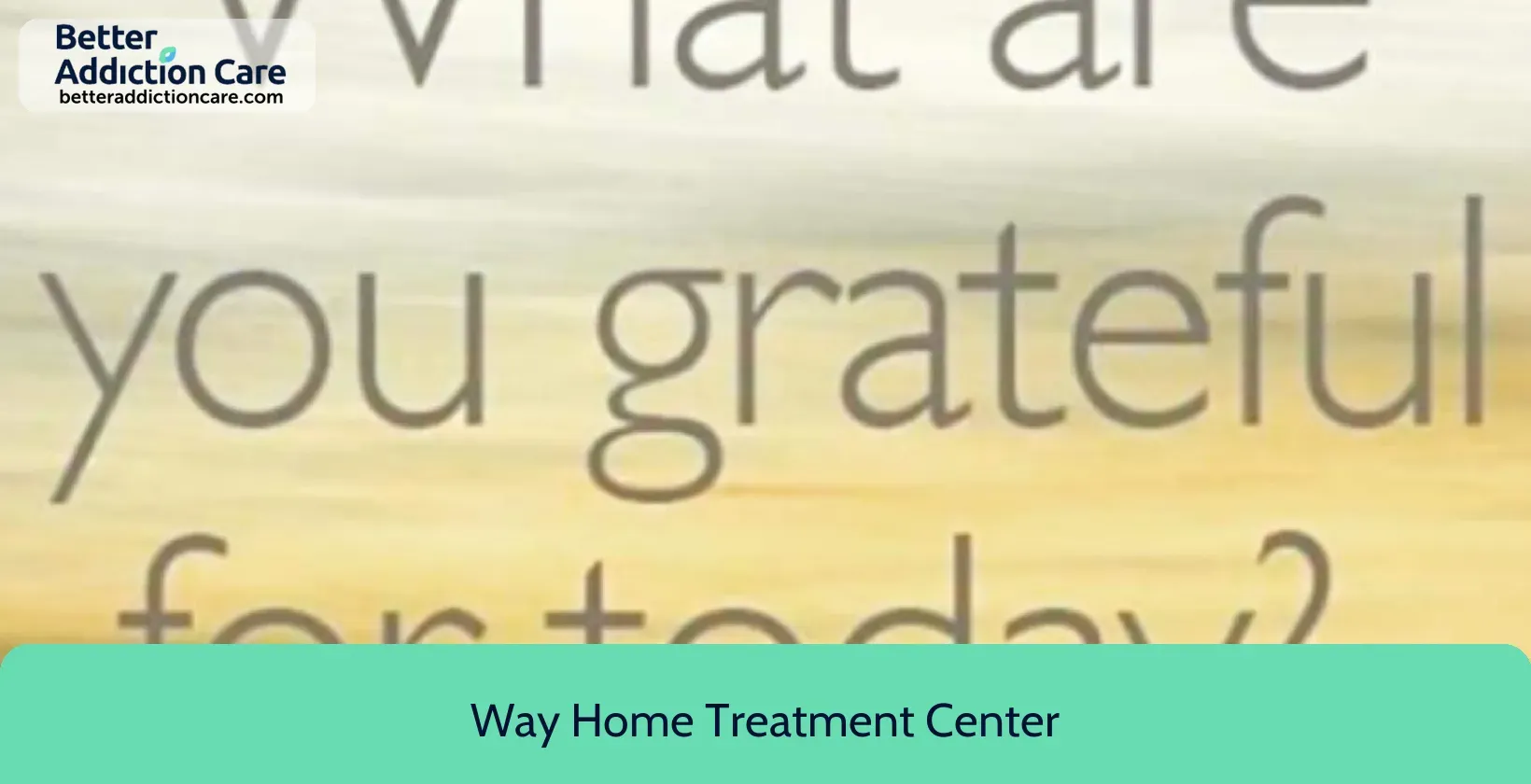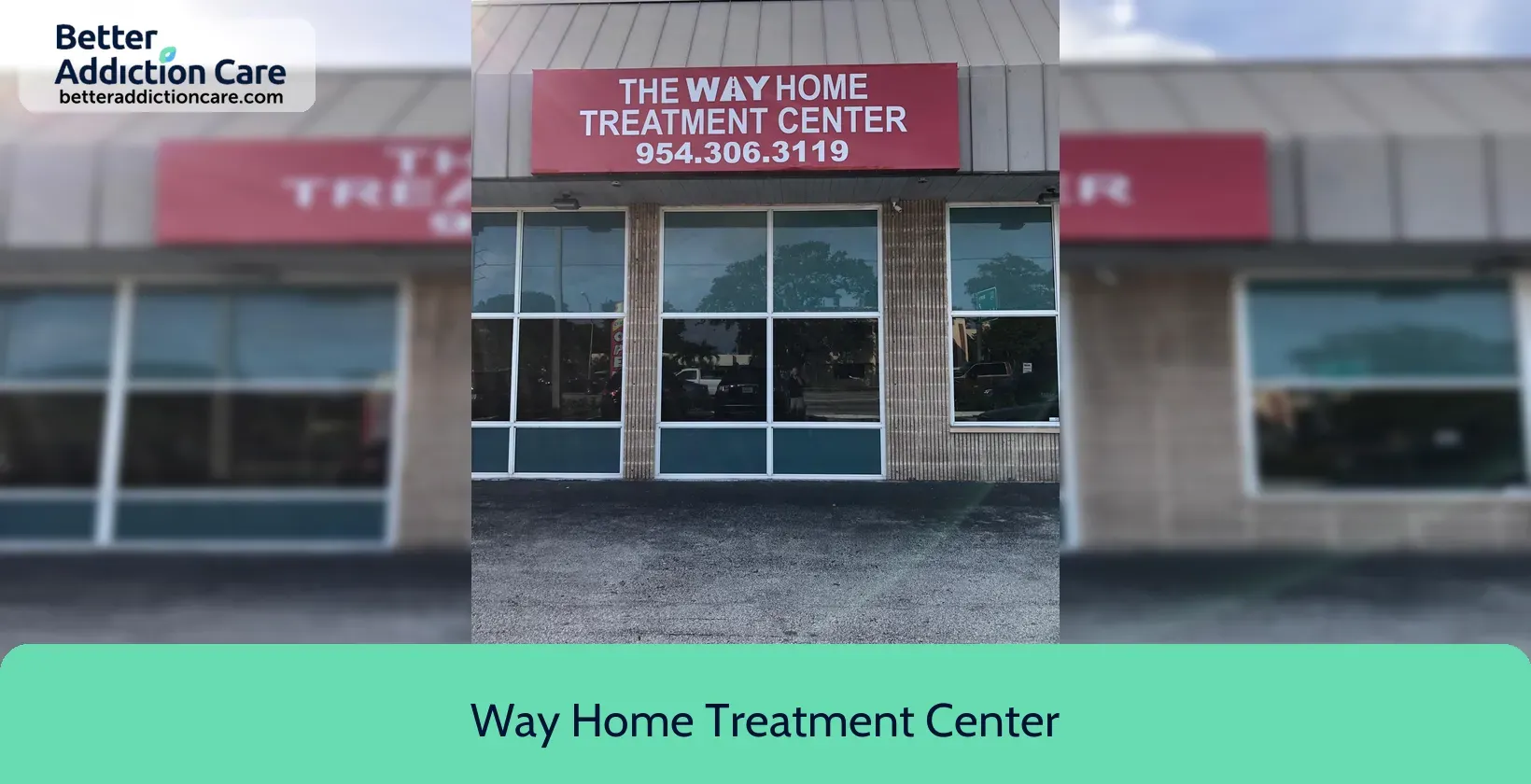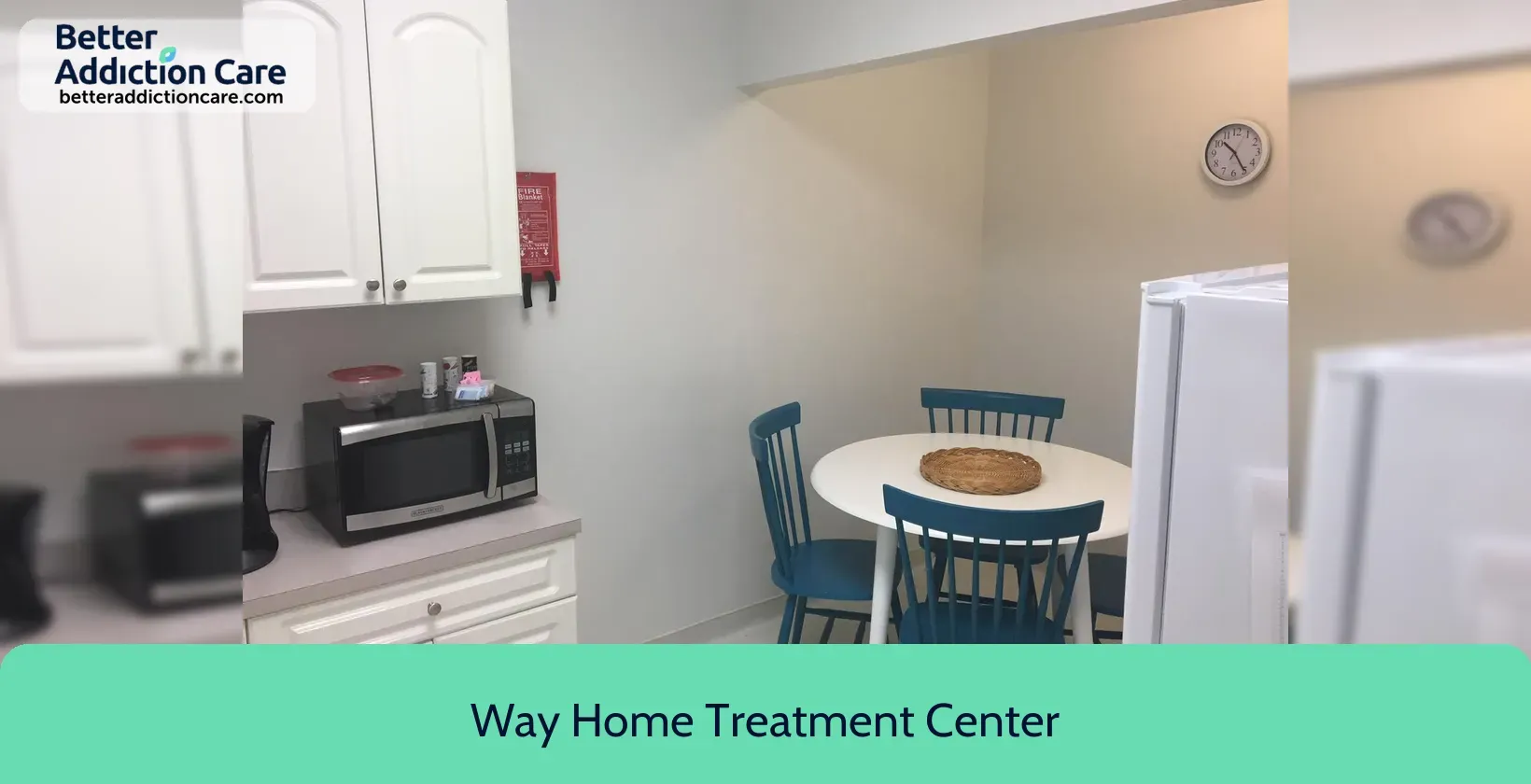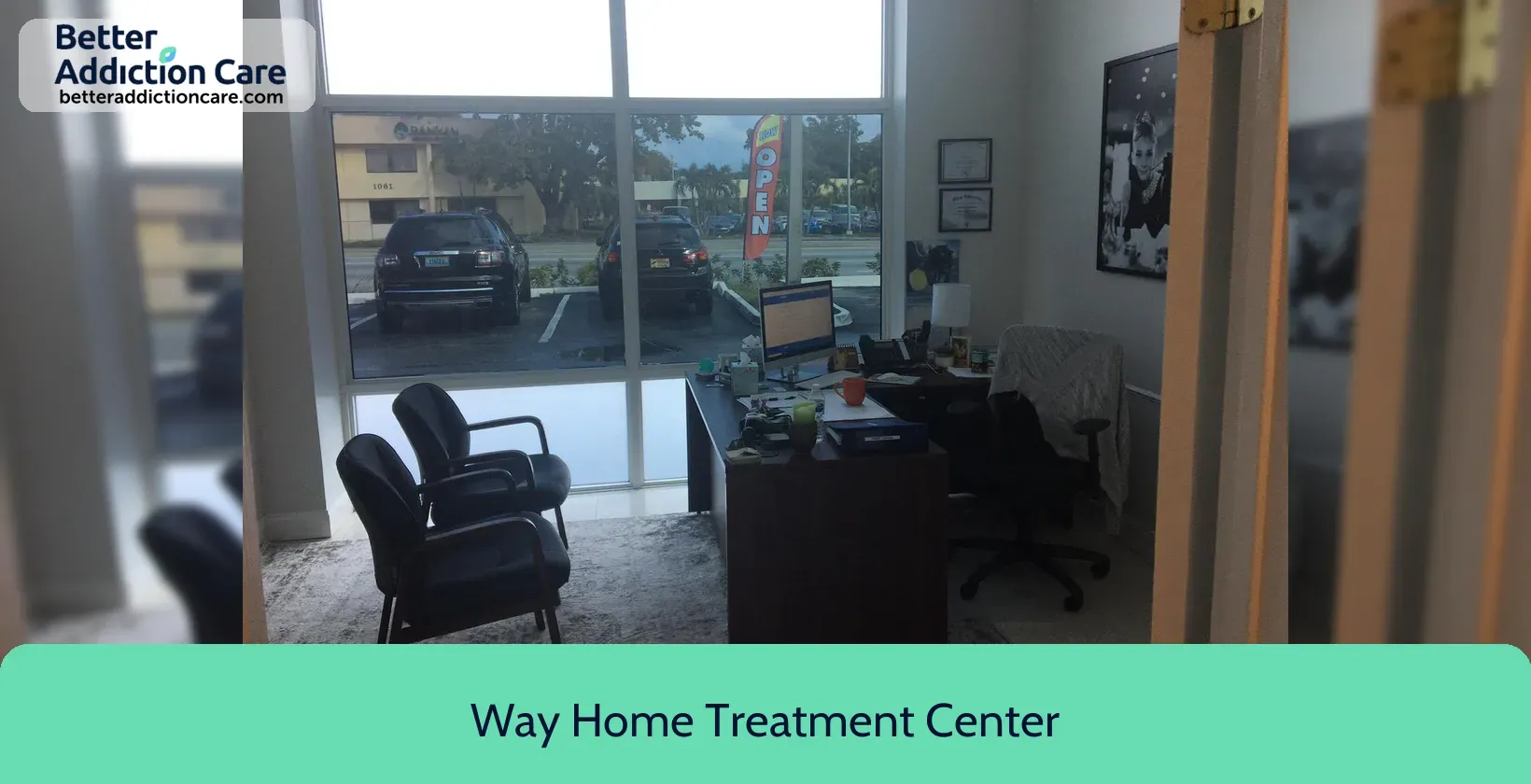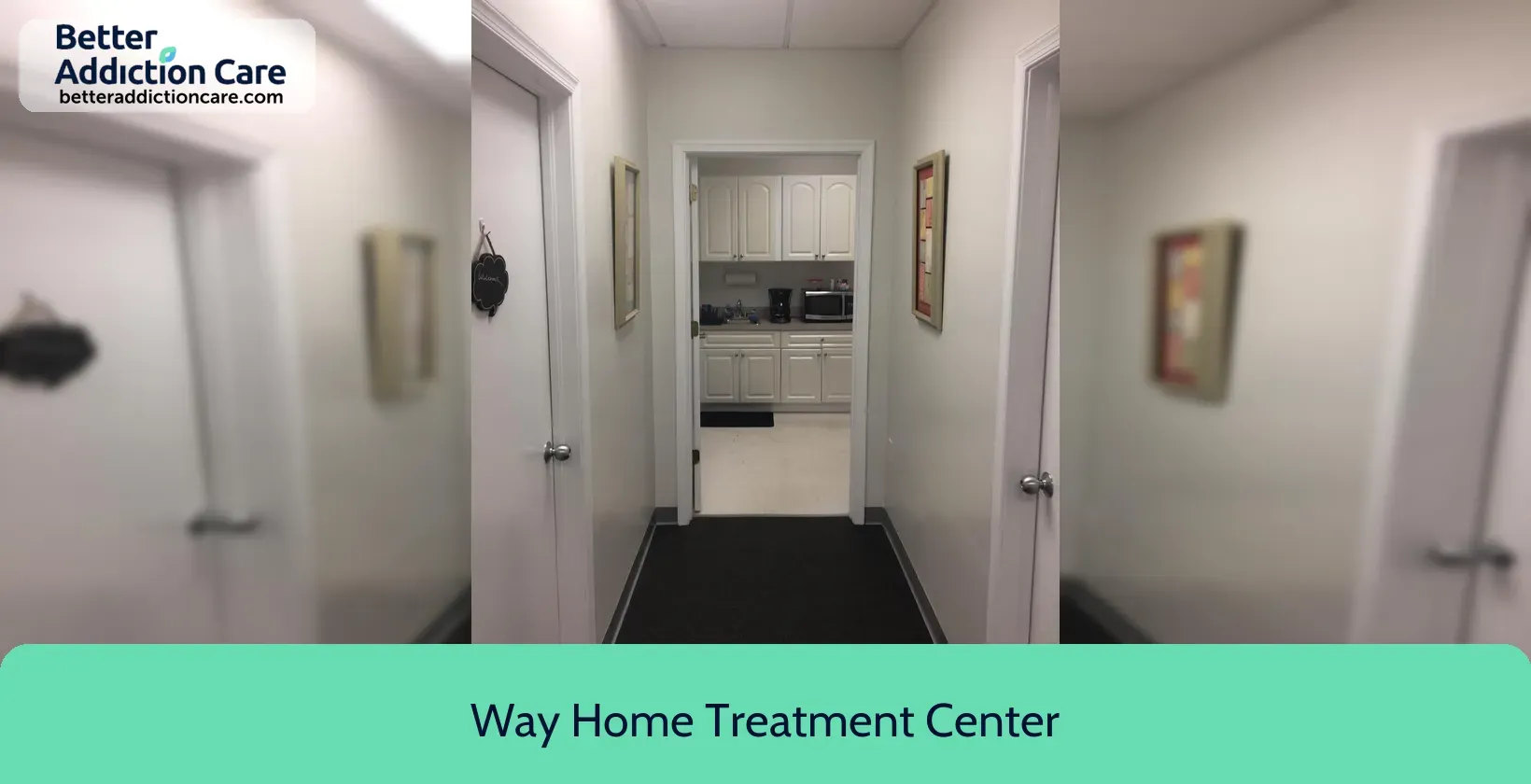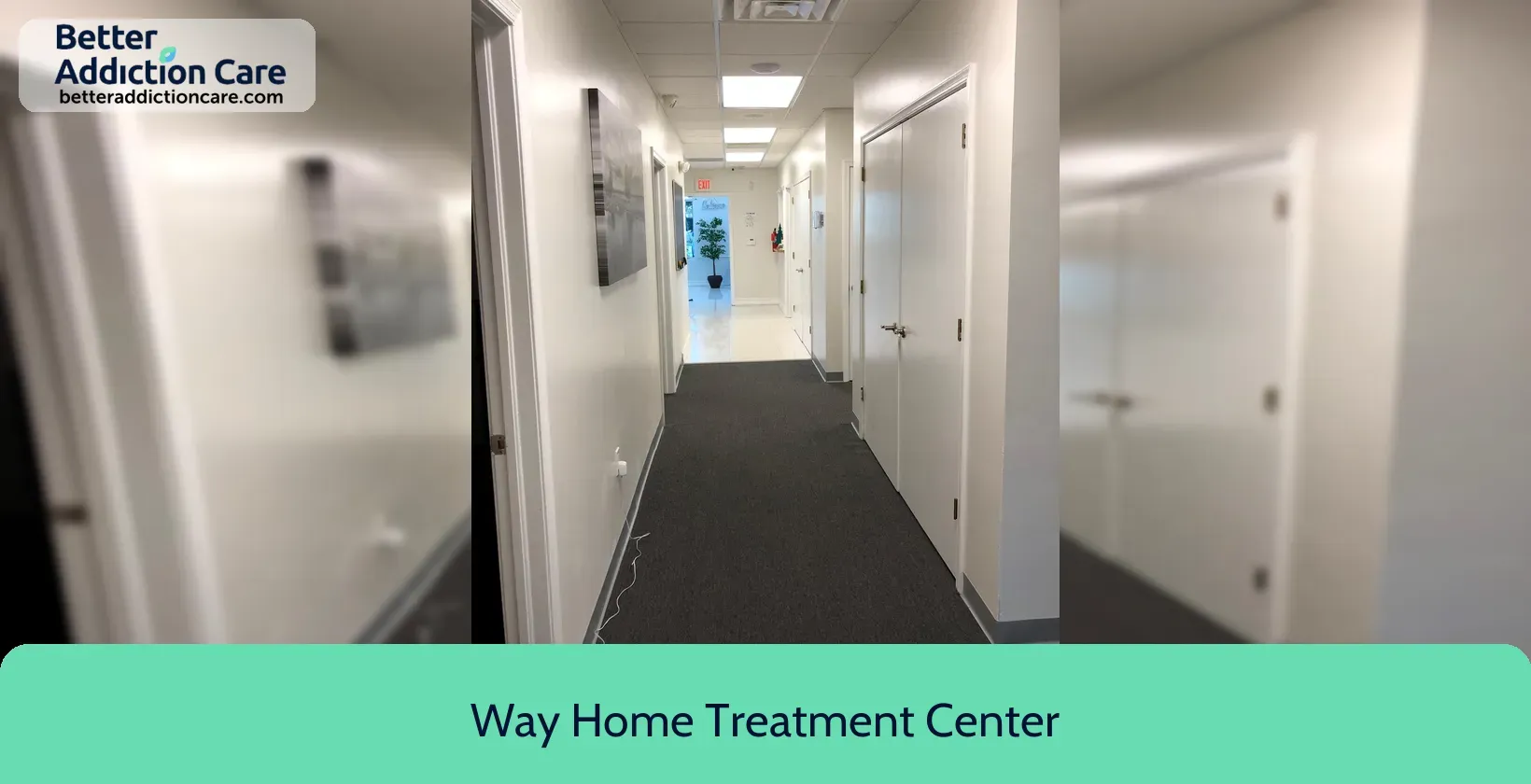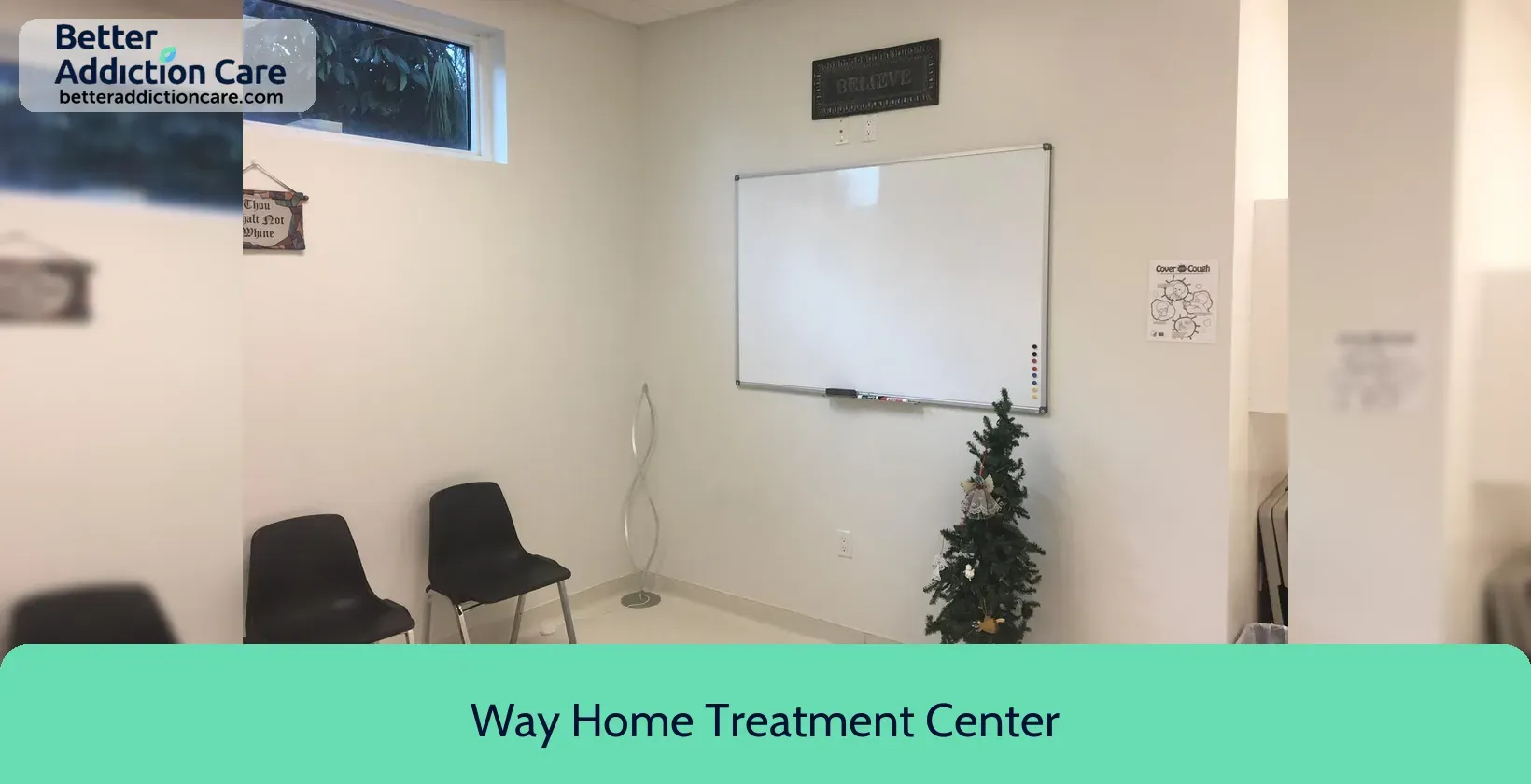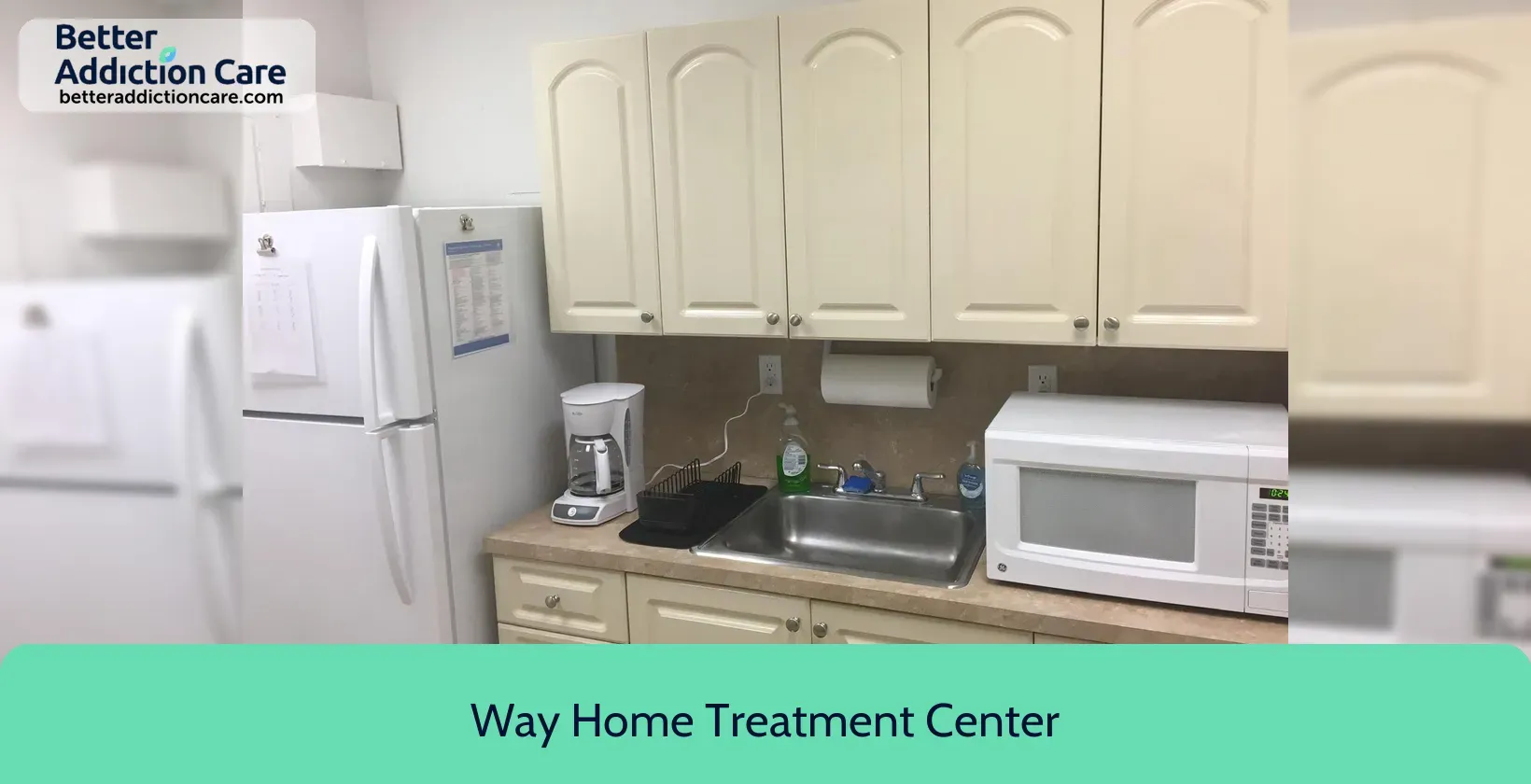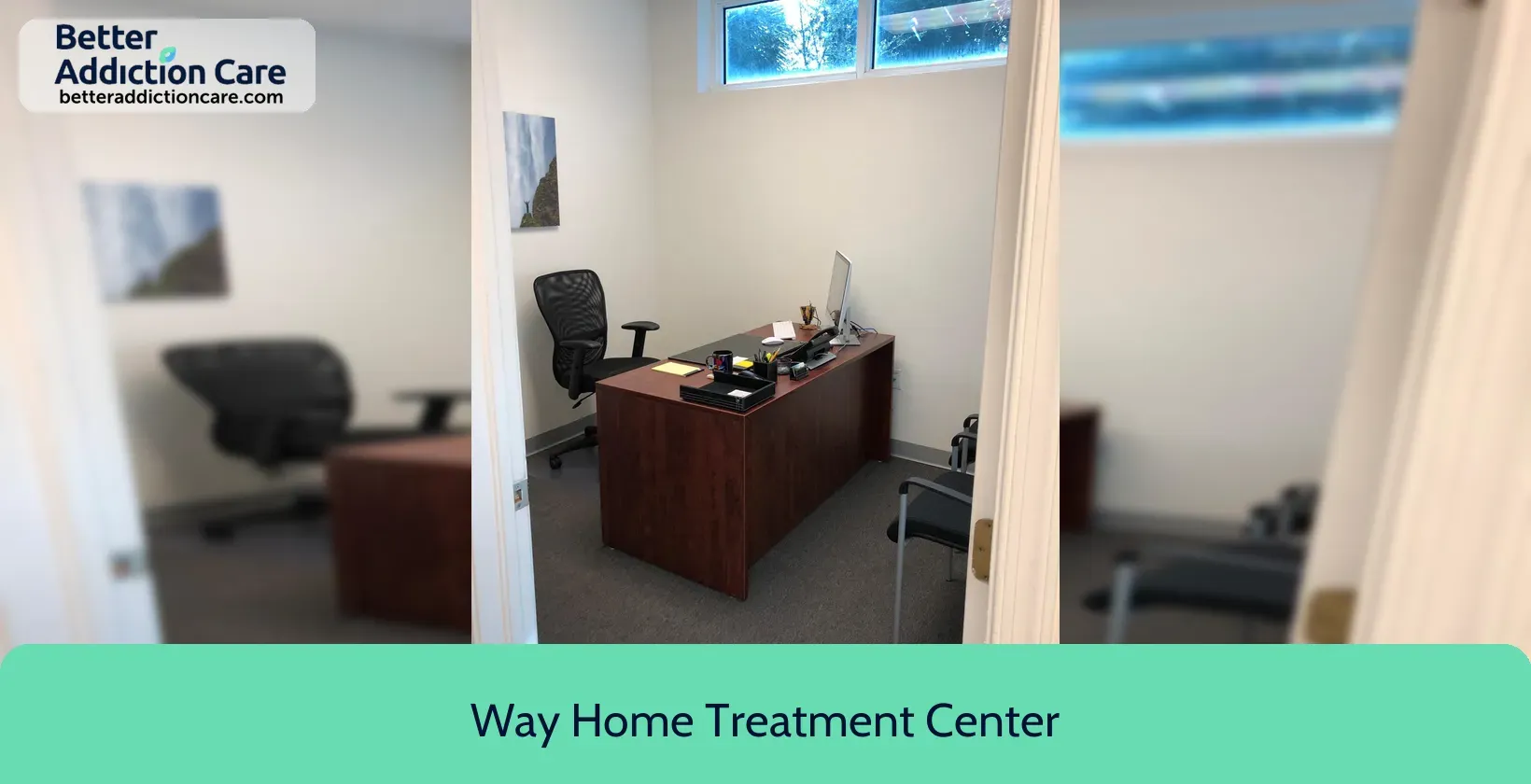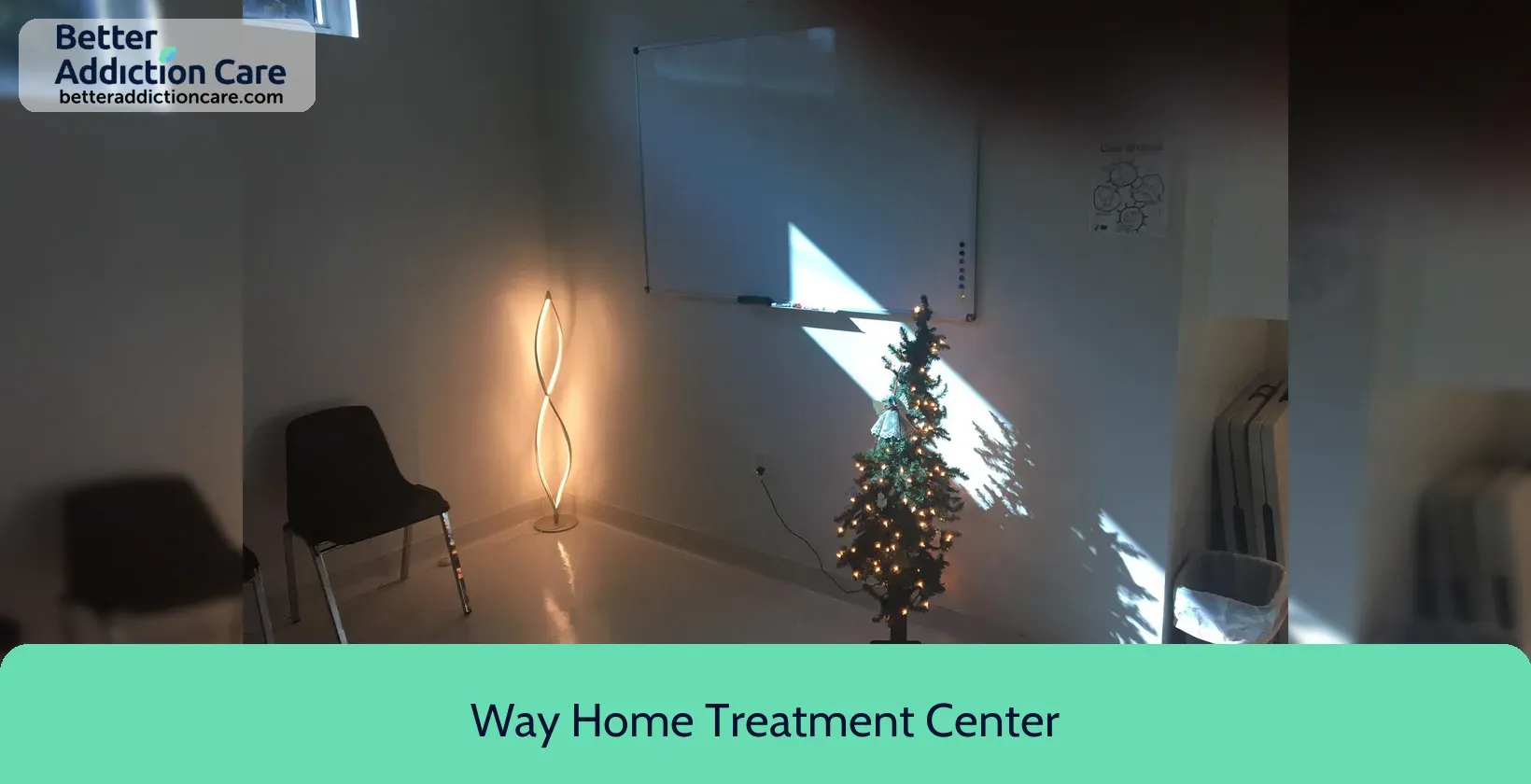Way Home Treatment Center
Overview
Way Home Treatment Center is a substance abuse treatment center for people seeking treatment near Broward County. As part of their treatment modalities for recovery, Way Home Treatment Center provides group counseling, individual psychotherapy, and trauma-related counseling during treatment. Way Home Treatment Center is located in Fort Lauderdale, Florida, accepting sliding fee scale (fee is based on income and other factors) for treatment.
Way Home Treatment Center at a Glance
Payment Options
- Sliding fee scale (fee is based on income and other factors)
- Cash or self-payment
Assessments
- Comprehensive mental health assessment
- Comprehensive substance use assessment
Age Groups
- Young adults
- Adults
Operation
- Private for-profit organization
Highlights About Way Home Treatment Center
6.56/10
With an overall rating of 6.56/10, this facility has following balanced range of services. Alcohol Rehabilitation: 8.00/10, Drug Rehab and Detox: 6.00/10, Insurance and Payments: 6.00/10, Treatment Options: 6.24/10.-
Alcohol Rehabilitation 8.00
-
Treatment Options 6.24
-
Drug Rehab and Detox 6.00
-
Insurance and Payments 6.00
Accreditations
State department of health:

Government agencies issue State Licenses, granting rehabilitation organizations permission to operate their businesses legally within specific geographic regions. The licenses needed for legal operation are typically determined by the type of rehabilitation program offered by a facility and its physical location.
Registration: IOP-LIC1046441 OP-LIC1046442
Commission on Accreditation of Rehabilitation Facilities (CARF):

Established in 1966, the non-profit organization known as the Commission on Accreditation of Rehabilitation Facilities (CARF) has a dedicated focus on accrediting rehabilitation organizations. CARF's primary mission is to assist service providers, particularly rehabilitation facilities, in upholding and promoting the highest standards of care.
Treatment At Way Home Treatment Center
Treatment Conditions
- Alcoholism
- Mental health treatment
- Substance use treatment
- Co-occurring Disorders
Care Levels
- Outpatient
- Intensive outpatient treatment
- Regular outpatient treatment
Treatment Modalities
- Group counseling
- Individual psychotherapy
- Trauma-related counseling
Ancillary Services
Special Programs
- Clients who have experienced trauma
Get Help Now
Common Questions About Way Home Treatment Center
Contact Information
Other Facilities in Fort Lauderdale
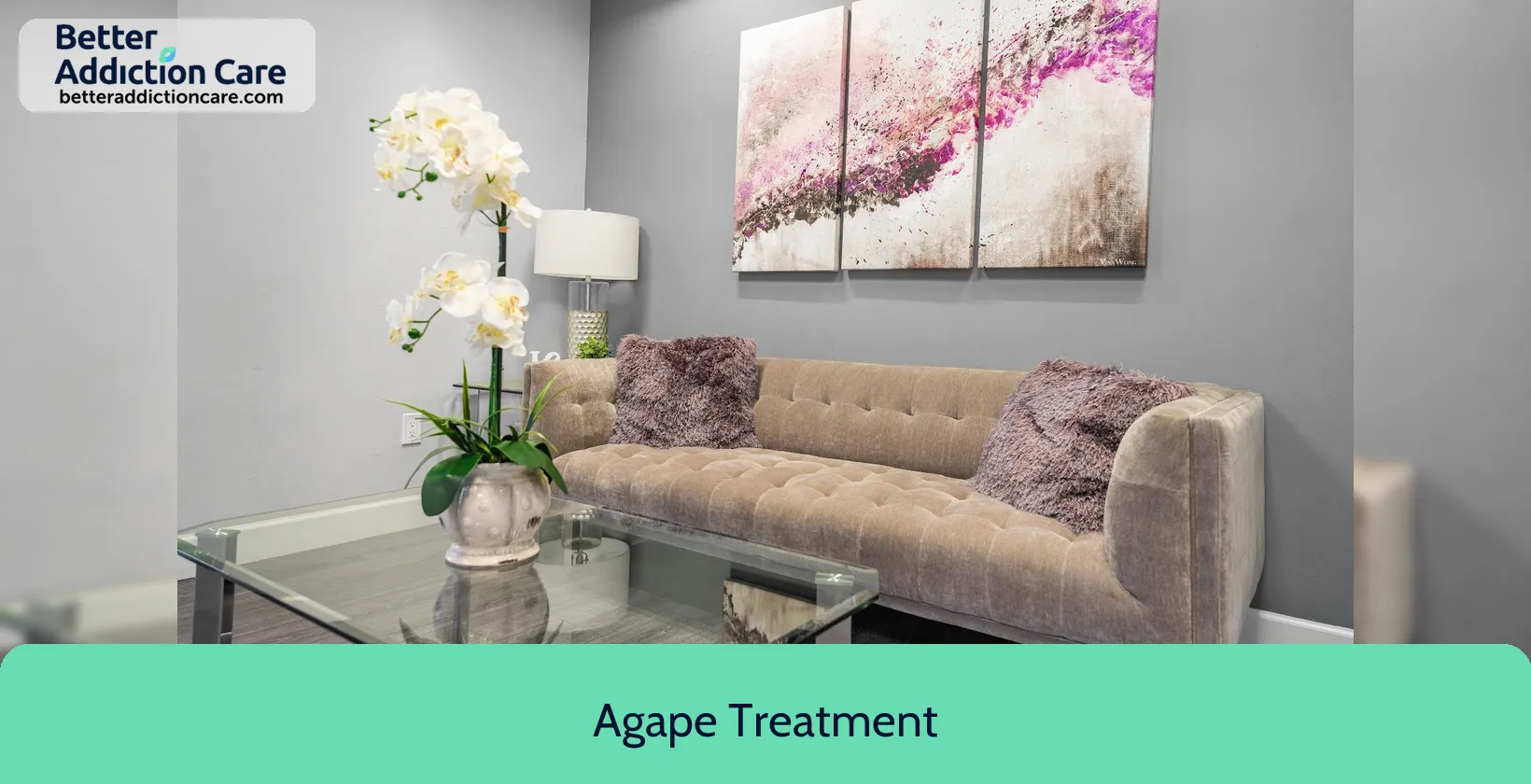
7.40
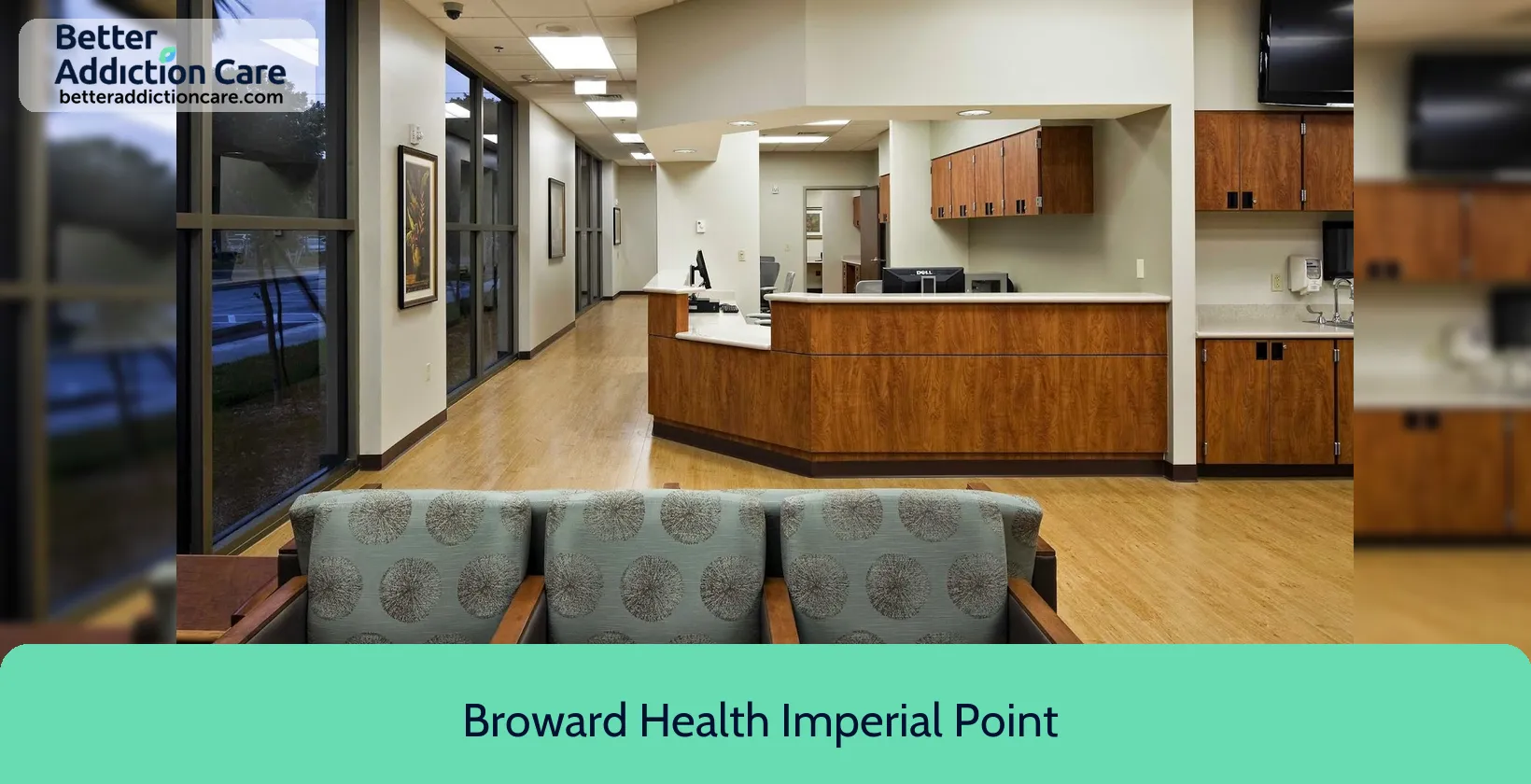
6.65
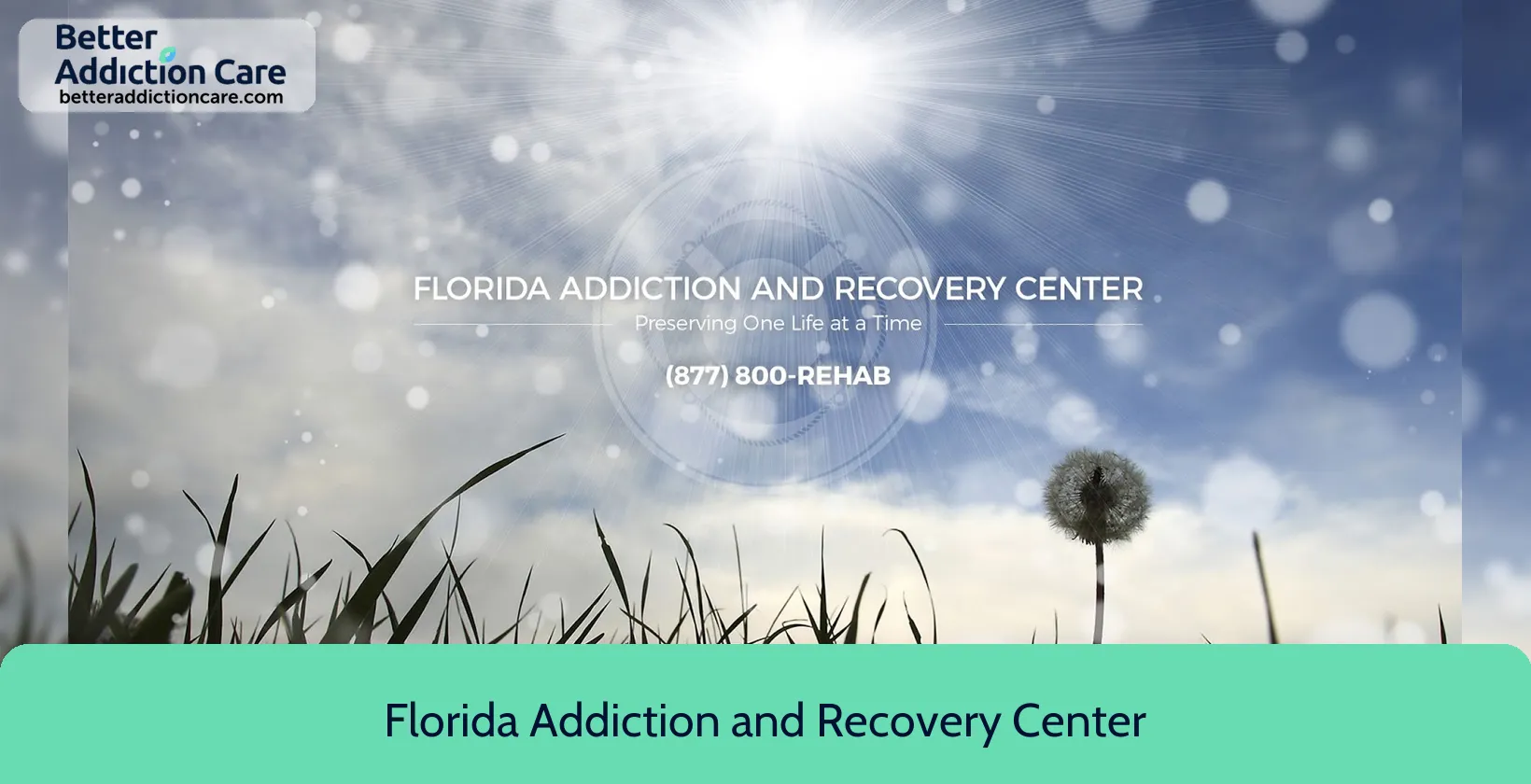
7.51
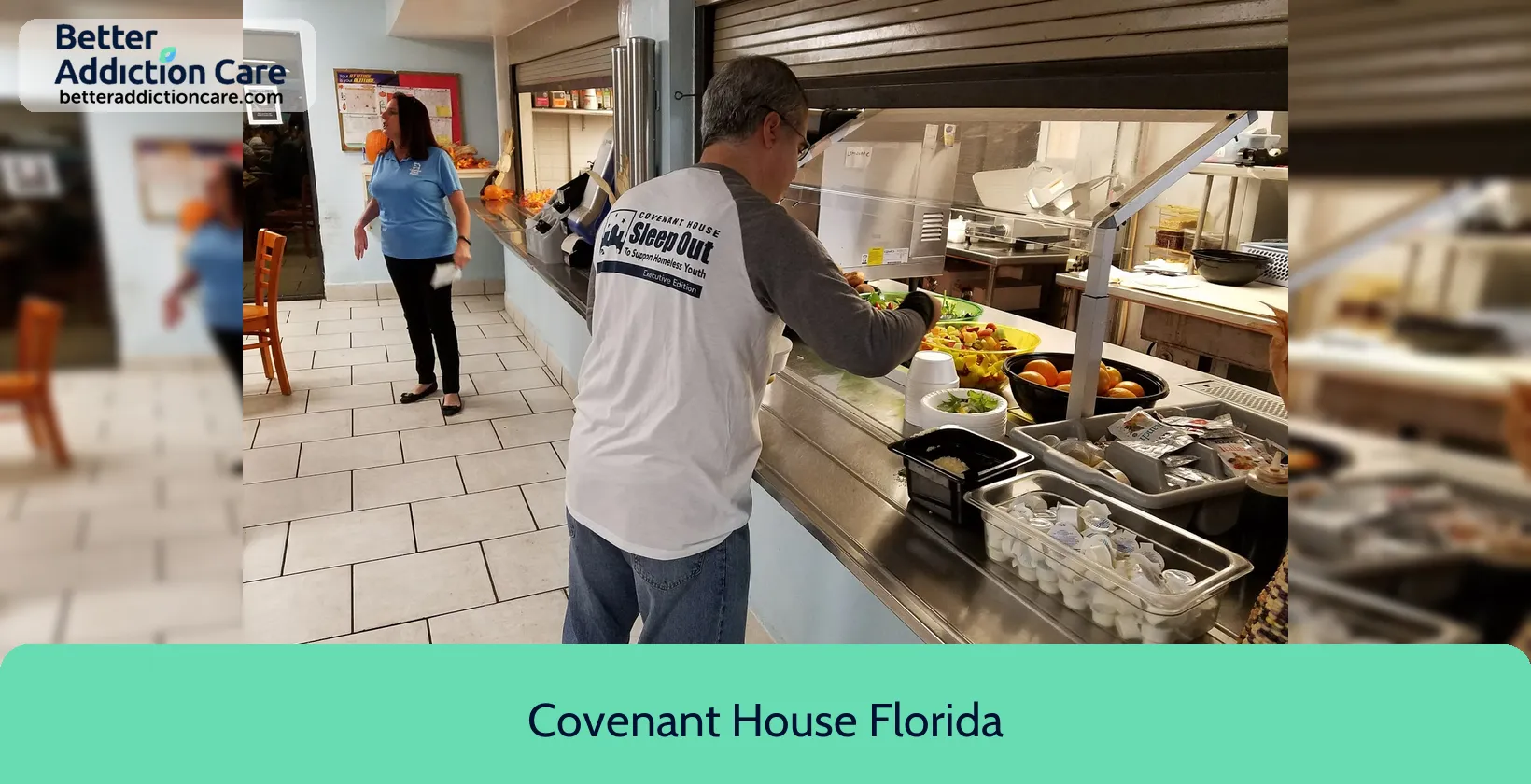
6.89
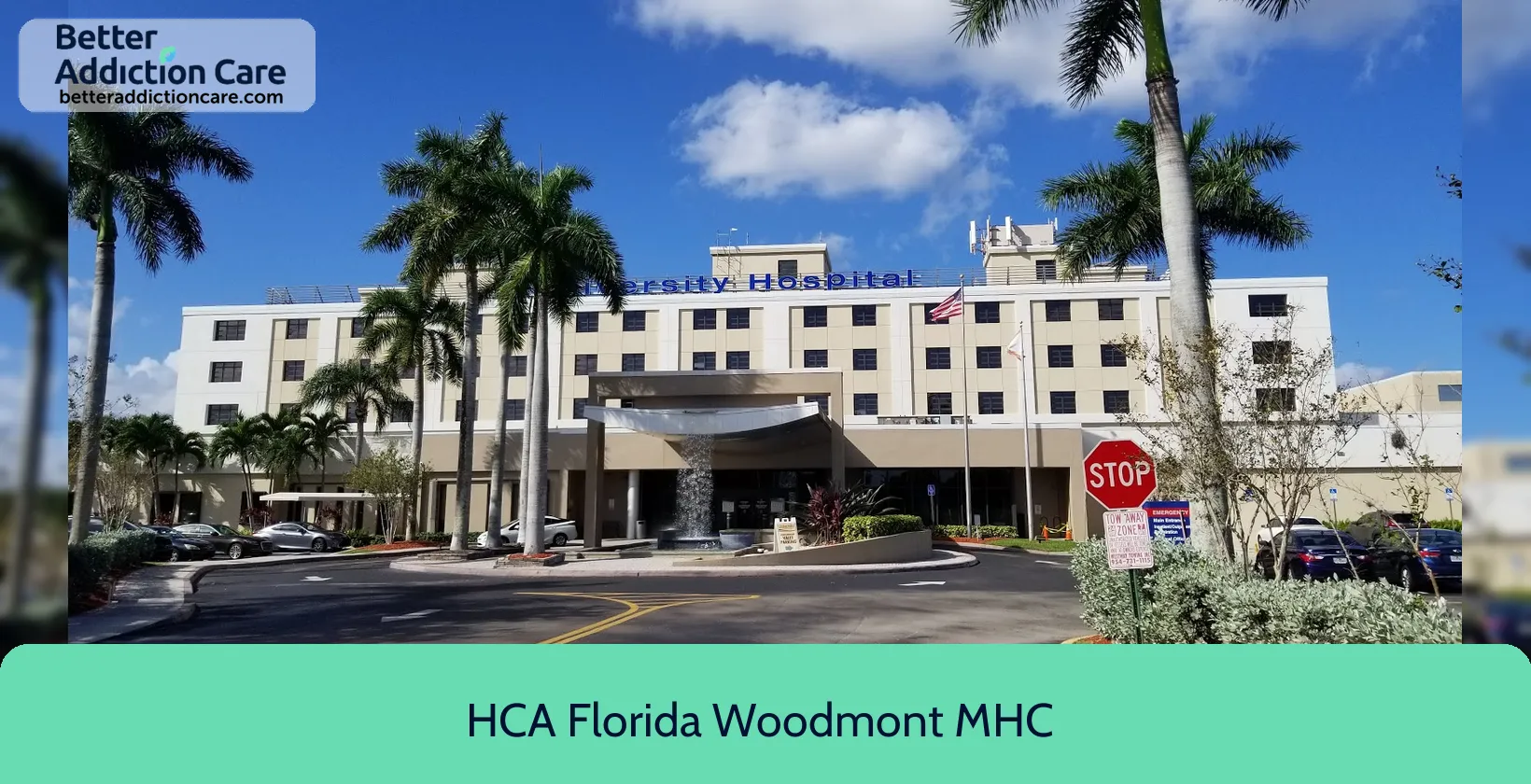
6.74
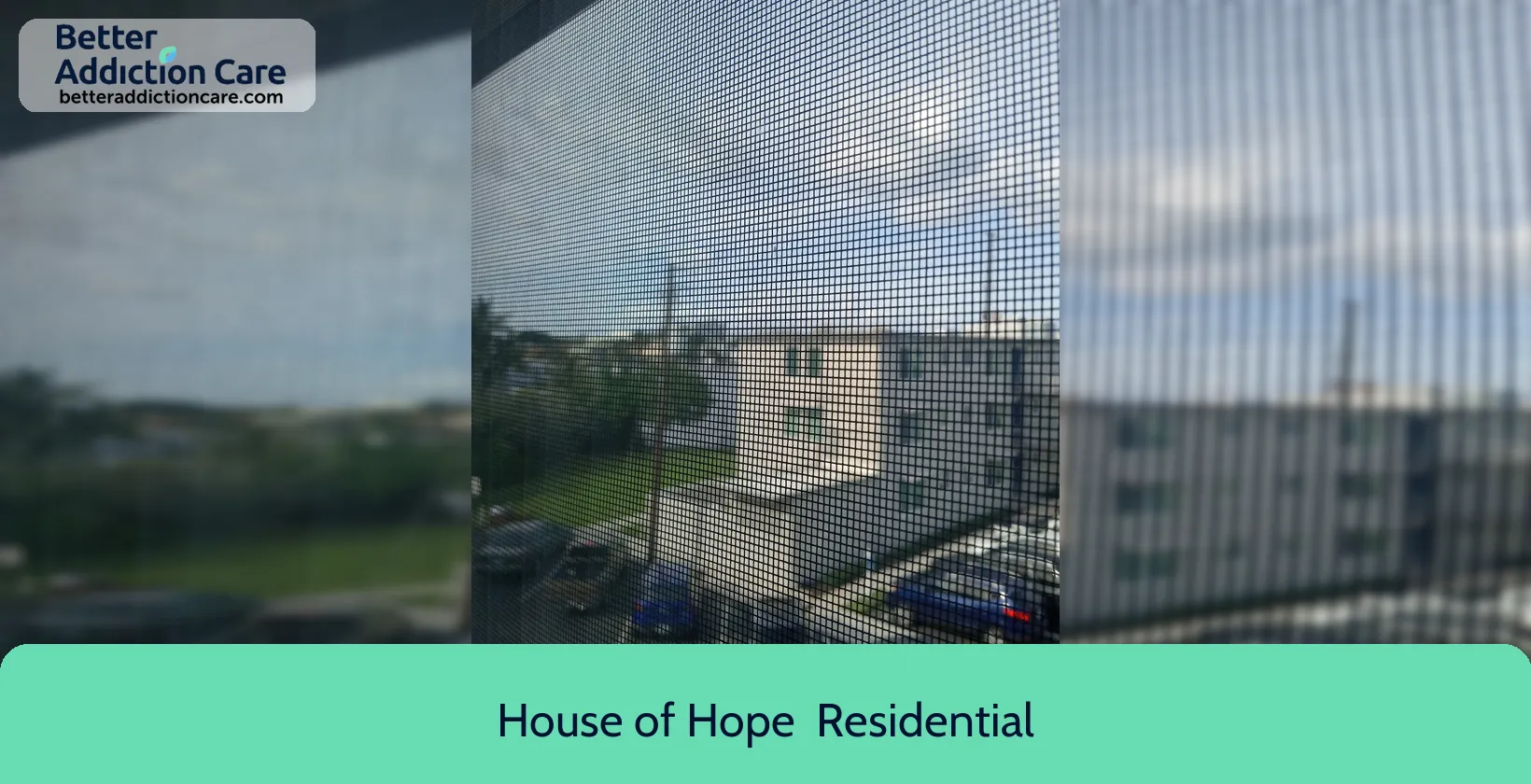
7.31
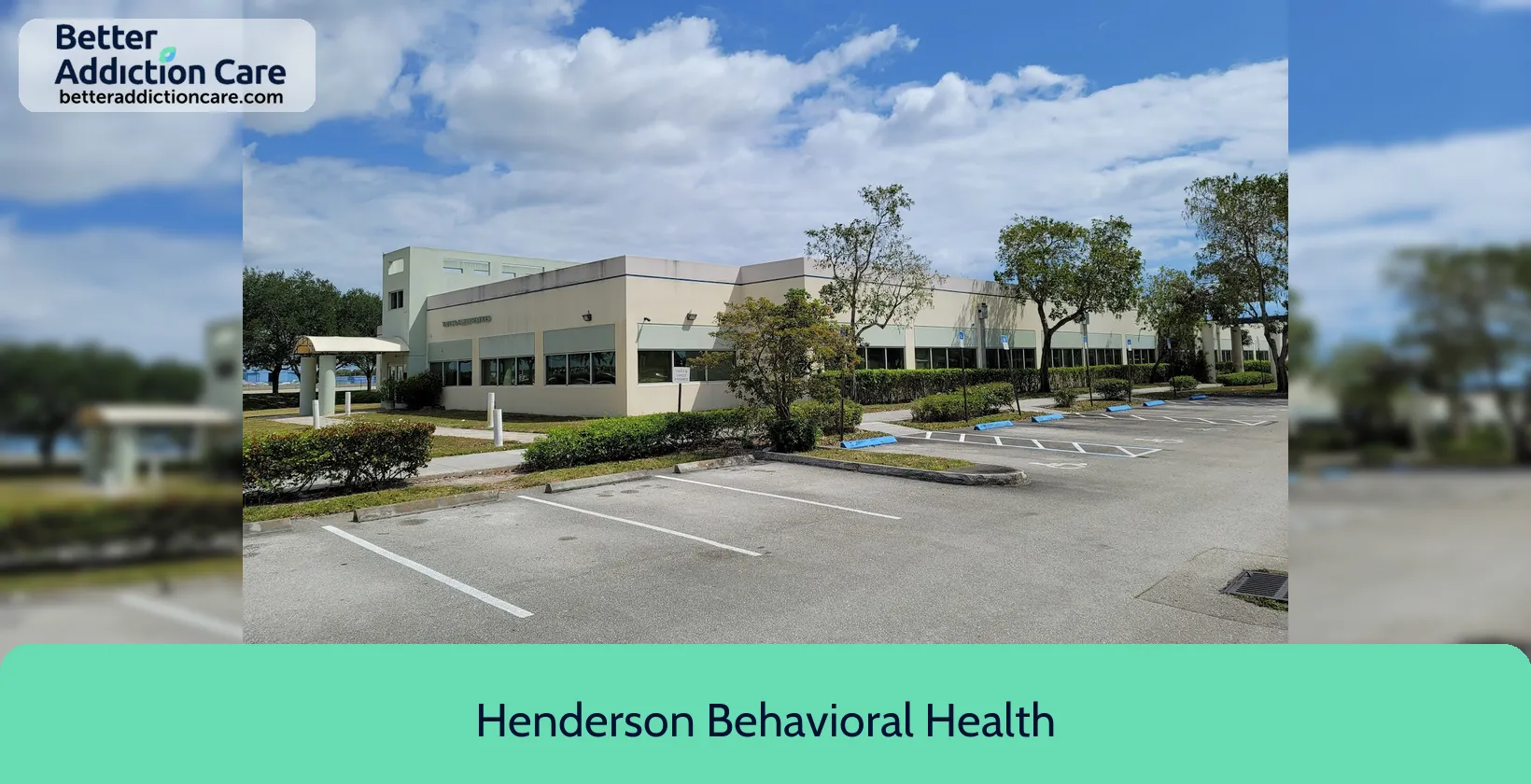
6.69
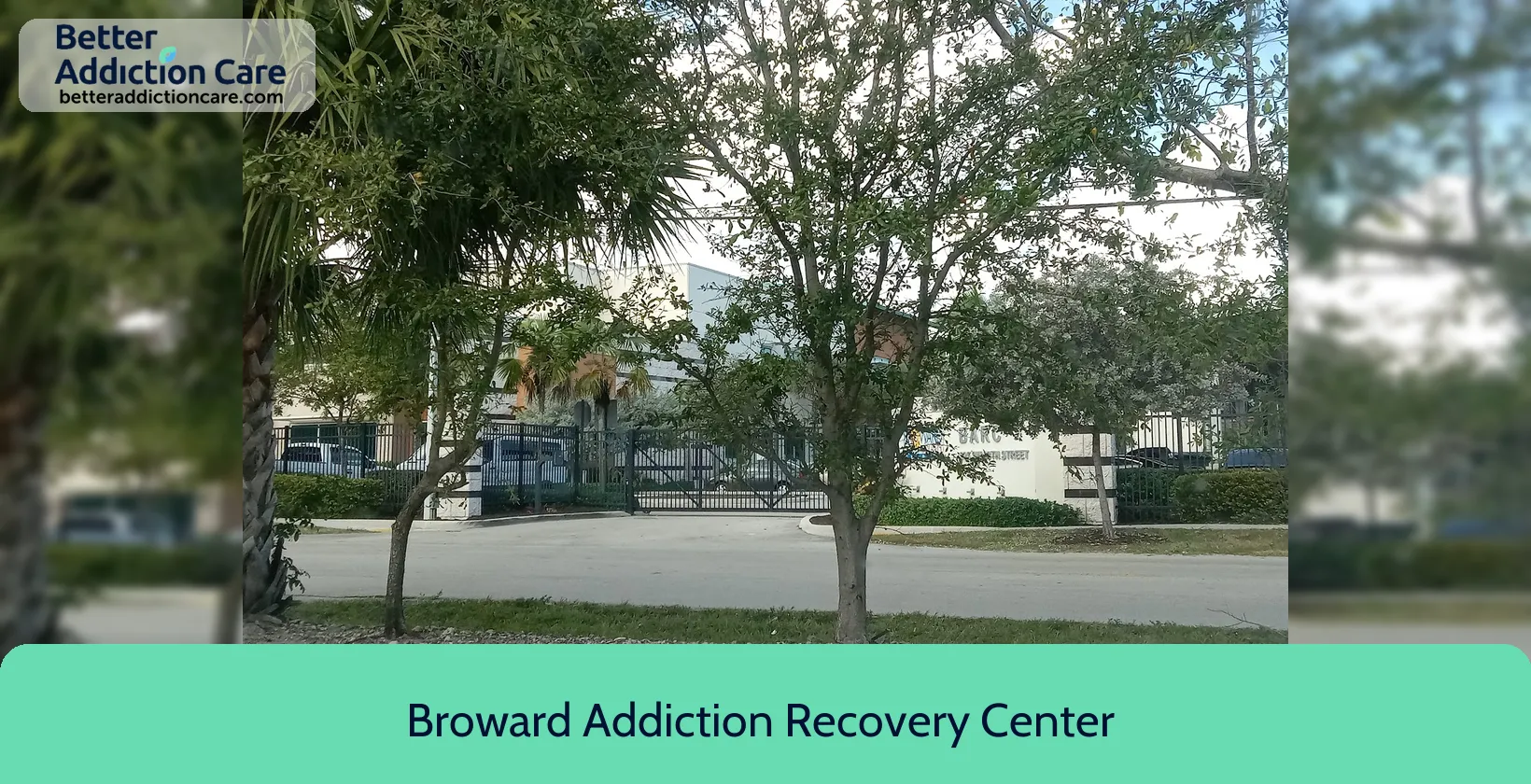
7.50
DISCLAIMER: The facility name, logo and brand are the property and registered trademarks of Broward Addiction Recovery Center - Edgar P. Mills, and are being used for identification and informational purposes only. Use of these names, logos and brands shall not imply endorsement. BetterAddictionCare.com is not affiliated with or sponsored by Broward Addiction Recovery Center - Edgar P. Mills.
